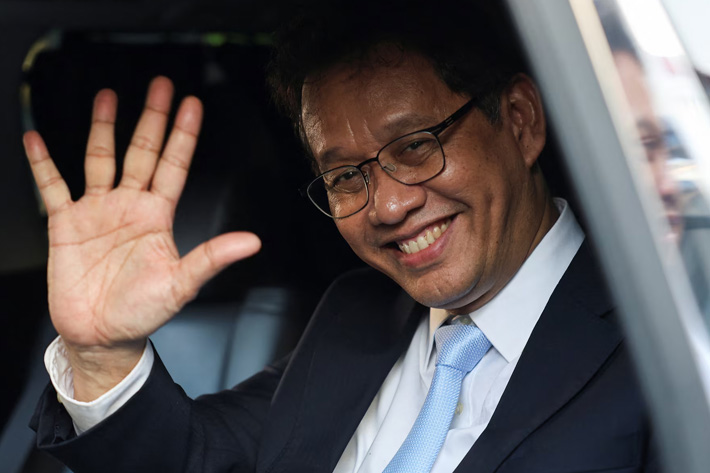Purbaya Yudhi Sadewa, the new Indonesian finance minister, said on Tuesday he would work with the central bank to ease liquidity in the financial markets.
Purbaya wants to unlock funding for economic activities and government programmes, but he pledged, after his first cabinet meeting with President Prabowo Subianto, to abide by rules limiting the annual budget deficit to 3% of GDP.
Purbaya replaced long-standing finance minister Sri Mulyani Indrawati, whose abrupt removal on Monday stunned markets – as investors fear the hard-fought fiscal credibility of Southeast Asia’s biggest economy could be eroded by the populist spending plans launched by Prabowo.
ALSO SEE: Seoul Bids to Ease Anger Over Mass Arrests at US Hyundai Plant
“I have discussed with the central bank … and with the president’s permission, going forward we will take measures needed to ease liquidity significantly in the short term,” he said.
A Bank Indonesia spokesperson declined to comment.
Purbaya promised he would take no unusual measures, focusing instead on accelerating existing state programmes and improving liquidity in order to bolster economic growth without increasing government debt.
Calls to fight inequality
His comments came as more than 380 economists called for deeper reforms that address growing inequality, which they identified as the main source of anger fuelling weeks of protests across the country.
The economists listed demands in a press conference on Tuesday, including budget cuts for populist programmes, deregulation to improve the investment climate, and for the government to stop interfering in institutions such as the central bank and law enforcement agencies.
The main stock index extended Monday’s losses, falling 1.8% on Tuesday. Indonesia’s international bonds weakened, while yields of rupiah-denominated bonds rose.
The rupiah fell 1% against the US dollar, even after the central bank said it would intervene to make sure the currency moved in line with fundamentals.
Prabowo took power less than a year ago with promises to lift economic growth to 8% and to introduce some ambitious, and expensive social programmes, such as providing free meals for 83 million students and pregnant women.
Growth has largely hovered around the 5% mark post-pandemic, with no immediate signs of a spike in economic activity under Prabowo.
“Mulyani was the safeguard of prudent fiscal policy,” Hasnain Malik, EM equity and geopolitics strategist at Tellimer, said. “Her departure will stir up fears of widening deficits under an unconstrained and, after the protests, under-pressure Prabowo.”

Small protest lingers
Indonesia was roiled by nationwide protests from late August, initially triggered by big allowances for lawmakers but evolving to take in other grievances, including misallocation of government spending and alleged police brutality.
On Tuesday, a few hundred students protested peacefully in front of the parliament building in Jakarta, calling for the release of protesters and activists detained since last week, among other things.
The finance ministry held a formal handover ceremony earlier on Tuesday, during which Purbaya admitted his job was not easy amid global challenges in technology and geopolitics.
Sri Mulyani said her farewells during the ceremony, attended by senior government and central bank officials.
“Nobody’s perfect. When one does their job, there are shortcomings … I humbly apologise,” she said.
- Reuters with additional editing by Jim Pollard
ALSO SEE:
Prabowo Cuts Lawmakers’ Benefits After Riots in Indonesia
Solar Power Boom Surging in Indonesia, Australia, Africa
Indonesia Pays High Price for US Trade Access, Faces 19% Tariffs
Indonesia to Sign $34 Billion Pact With US Ahead of Tariff Deadline
Investors Not Happy as Indonesia Eases Limits in Military Law
Apple ‘to Invest $1bn in Indonesia’ After $100m Offer Rejected
China-Indonesia Sign $10bn in Deals on EVs, Batteries, Solar
Indonesia Moves to Block China’s Temu to Protect Small Merchants
Indonesia Has Applied to Join The Trans-Pacific Trade Pact
Indonesia Plans up to 200% Tariffs on Chinese Goods – Antara
Indonesian Poll Counts Show Prabowo Poised for First Round Win
Jokowi’s Son Teams up With Prabowo for Indonesian Election
























